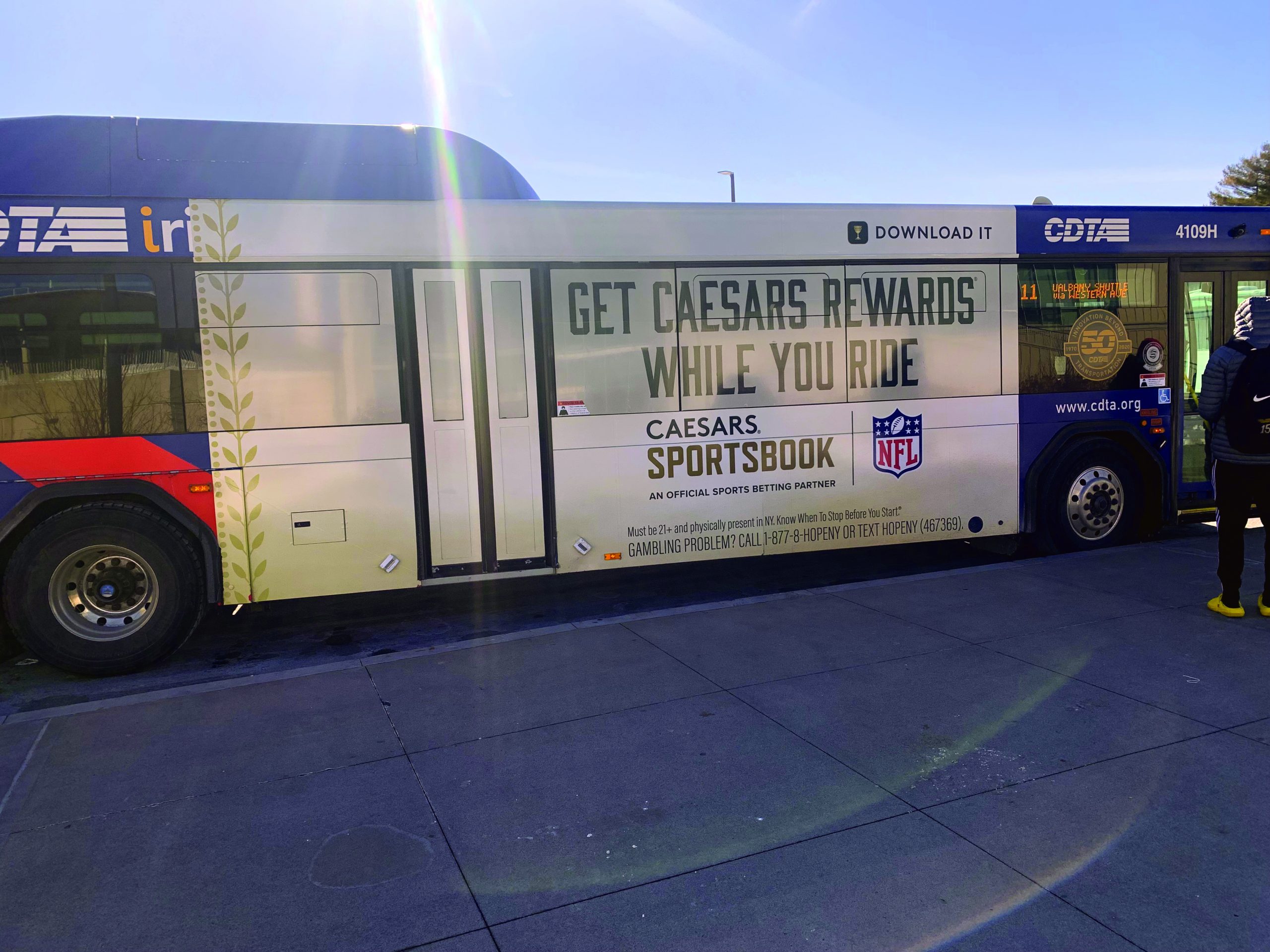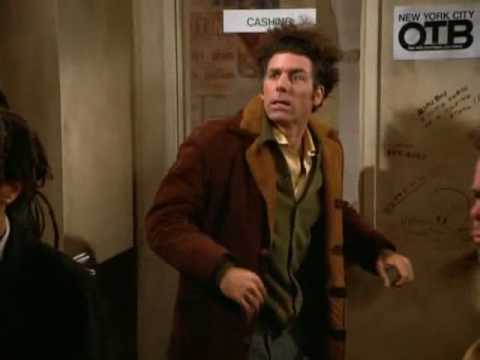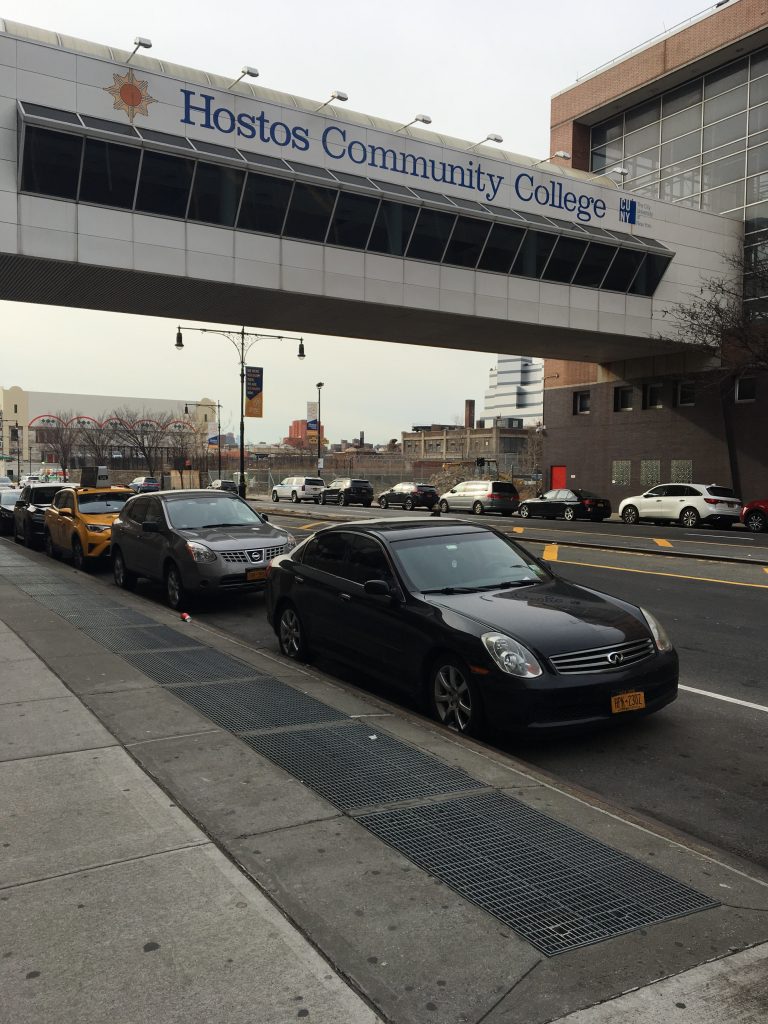By Darren Johnson
Publisher
Sports betting was legalized in New York in January of this year and, quickly, $1.7B in bets were placed in the state in the first 24 days leading up to the Super Bowl. The casinos that operate the sports apps raked in $125 million in profits; 51% of which goes to the state in the form of tax revenue. The NCAA March Madness tournament is finishing as of press time; surely more people have been betting the 67 games involved with that, along with other sports, as such gambling is becoming quickly normalized. One web site estimates a third of all legal sports bets in the country now come from New York.
Pictured: A bus with a big gambling ad on its side pulls into SUNY Albany.
But, while TV and the Internet are now filled with endless ads for sports books, and while politicians are all beaming – nary a negative word to be said publicly – the fact of the matter is when more gambling options present themselves, more people will become hooked, leading to devastation in their lives. And the state budget only allows for 1% of gambling tax revenue to fund gambling addiction help centers for the first year; less, apparently, in future years.
I spoke with Brandy Richards, a Team Leader for the Northeast Problem Gambling Resource Center. Her office covers the Capital Region and North Country.
If you need to reach them, visit www.NYProblemGamblingHELP.org, call 518-801-1491 or email NortheastPGRC@NYProblemGambling.org. They will help those who think they may have developed a gambling problem, as well as “affected others” who have a gambler in their lives and need support.
Here is our conversation:
DJ: Have you gotten an increase in calls since sports betting was legalized?
BR: We’re definitely seeing an increase. We can attribute that to lots of different things. The 1-877-8-HOPENY number is out there, as a mandatory part of the advertising. …
We do keep track of what the calls are about, and in the Capital District’s 15-county region, slots and the casino are still No. 1, followed by sports betting, horse racing and the lottery and then cards and other things.
Casinos lead the pack because there are numerous ones in our region, but sports betting quickly has taken over the second spot.
DJ: What makes sports betting different?
BR: Our concern with the mobile sports betting is the accessibility, and it’s attracting people who may have never gambled before. It’s attracting a lot of new folks.
And there’s concern on our end for the younger generations being pulled into this with “risk-free” [advertising] promotions that are out there. … It’s really easy to lose track of time and money with the type of cashless system the apps use.
They have a casino in the palm of their hands.
DJ: I downloaded one of the apps and am amazed at how many gambling options are allowed. You can bet by the minute. This isn’t traditional sports betting, where you place a simple bet and then wait three hours for the game to end. It’s instantaneous.
BR: It’s hard for people to put in place protective barriers when you have access right there. … It’s also something that’s really easy to hide, until perhaps it’s too late.
It is very easy for them to chase losses and say, “Now I can bet on the very next play of the game.”
DJ: The ads for these apps are everywhere.
BR: For people already in recovery, we’re finding this is a significant trigger for them. They are seeing advertisements and getting mailings.
DJ: And gambling addiction is different than others; it can hit you when you’re older, too.
BR: Yes, gambling addiction can spring up and overtake anyone at any point in their life. Everything can spiral out of control. There is a lot of violence, including domestic violence, that goes along with gambling, along with divorce, even crime. We see stories on the news all the time about people embezzling funds, or committing insurance fraud or taking out credit cards in their spouse’s name.
DJ: With casinos, people can voluntarily opt-out (it’s called “voluntary self-exclusion”) and be put on a list not to be let in to casinos. But what can people do to avoid gambling apps on their phones?
BR: We can help with voluntary self-exclusion or help find therapy that costs them nothing. Also, there’s peer support and step programs. There also may be counseling by text and telehealth. There are also in-patient facilities for gambling addition for extreme cases. We just want to meet people where they’re at when they call. There are no stigmas.
 Darren Johnson is a part-time journalism instructor for a couple of Upstate colleges as well as a full-time publisher of two newspapers.
Darren Johnson is a part-time journalism instructor for a couple of Upstate colleges as well as a full-time publisher of two newspapers.







Facebook Comments